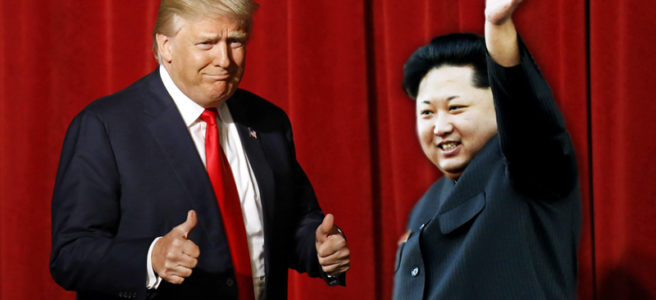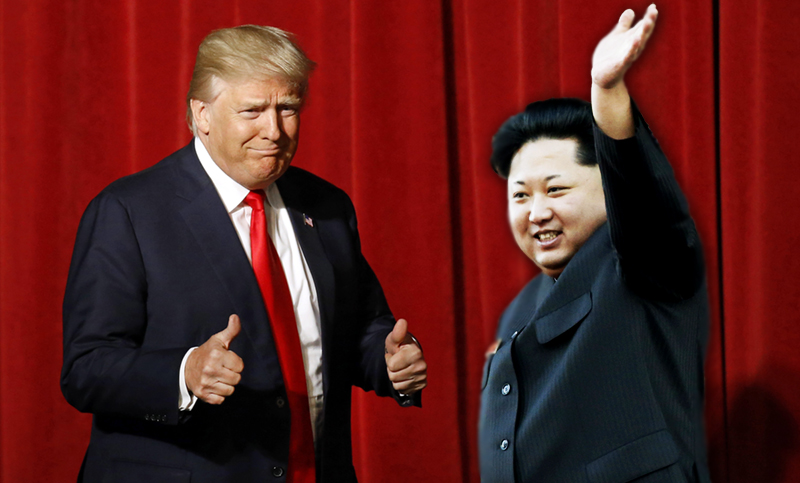Here we go, I guess. We’re just four days in, and it appears that all those nutty, childish, reactionary things that you’ve spent the last two months terrified of but that your racist uncle assured you were “just campaign trail antics” really are the cornerstone of our 45th President’s administration. Maybe I’m just being paranoid, but the past 72 hours have been nothing short of surreal. The sky is falling, call me Chicken Little if you must.
Since his inauguration a few days ago we’ve see President Trump throw a fit over parade size and actually acknowledge that his press secretary peddled “alternate facts,” which, wtf? We’ve seen him repeat the lie that his unprecedented loss of the popular vote was a result of unprecedented voter fraud. We’ve seen him straighten his tie with Scotch Tape.
While some Republican leaders fear that he is blowing his only chance to build consensus with the benefit of the doubt that comes with a nascent administration, he has found time to effect disastrous policy change (if stopping short of governing).
In the past 72 hours the current administration has hamstrug government efficacy (excepting, of course, the Military-Industrial Complex) through a blanket hiring freeze. It has apparently deemed the man who less than a year ago described President Obama as “The Antichrist” now, after testifying that climate change is a real thing, too moderate for a cabinet position. It has killed the EPA’s contracts grant program, which includes not only research and monitoring but environmental cleanup and redevelopment.
At the same time, an overwhelming majority of appointments (let alone confirmations) are vacant. A significant population of Obama staffers are still on board to make sure that someone flips the OPEN/CLOSED sign twice a day, which, by the way, includes James Comey, which can be any combination of:
a) An inability of the administration to come up with anyone different
b) A tacit approval of his mishandling of various investigations over the course of the last year
c) A move to retain some kind of leverage over the several pending investigations on connections between our government and foreign adversaries
Which, I mean, take your pick, I guess.
It’s not that the Trump administration hasn’t been busy, it just hasn’t been busy doing its job.
What we’re seeing is the good stuff. The easy stuff. The “let-me-stick-my-thumb-in-your-eye-you-haters-stuff.” We’re seeing quick, satisfying serotonin dumps in lieu of anything like strategy. We’re seeing a spoiled kid have dessert before broccoli. Between Kim Jong Un and Joffrey Baratheon you’d think we’d seen enough of the whole Boy King thing.
We’re seeing the same approach to governance that we saw during the campaign. The candidate Trump consistently eschewed preparation in favor of freewheeling showmanship. He never built a ground game or any kind of organizational infrastructure.
Now I know what you’re thinking: “He won, after all.” And you’re right. He did win*. He was elected by the country whose individuals carry an average of $16,000 in credit card debt and nearly $30,000 in auto loans. A country ravaged by obesity. A nation of people who consistently demonstrate that they cannot invest in the long term at the expense of the short.
This is where we are. We live with a barely functioning government of white supremacists that is actively divesting from our quality of life. So I’m proud to see that protests dwarfed the inauguration. I’m proud that the Women’s March was one of the largest (the largest?) demonstration in US history. I’m proud of that guy who punched Richard Spencer in the face.

My instinct is to stockpile guns and MREs and wait for Red Dawn to play out, because this feels about as close to the end of the world as I can remember. But that’s only because I can’t remember when there were a bunch of nuclear warheads in Cuba pointed right at our faces. This country has seen some shit, and it’s still more or less in one piece. So stay mad and eat your broccoli, it’s just two years to midterms.
*kind of.
Like








